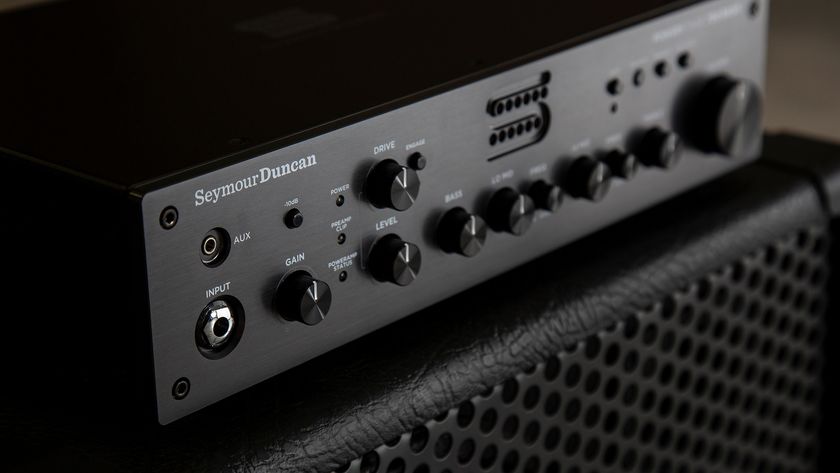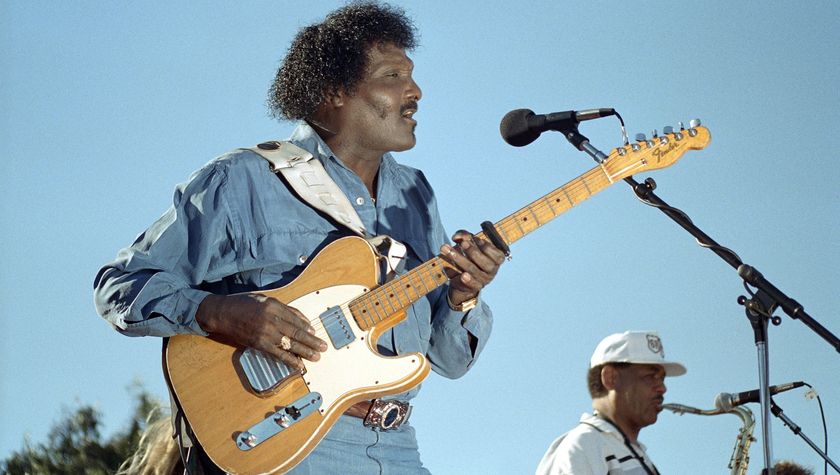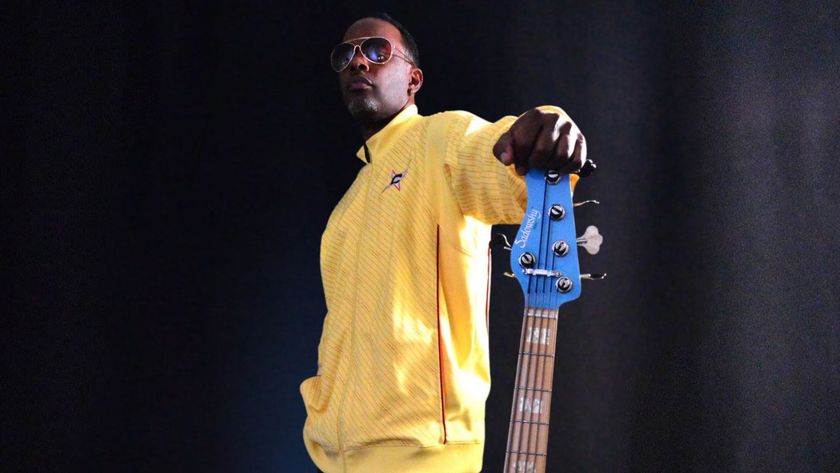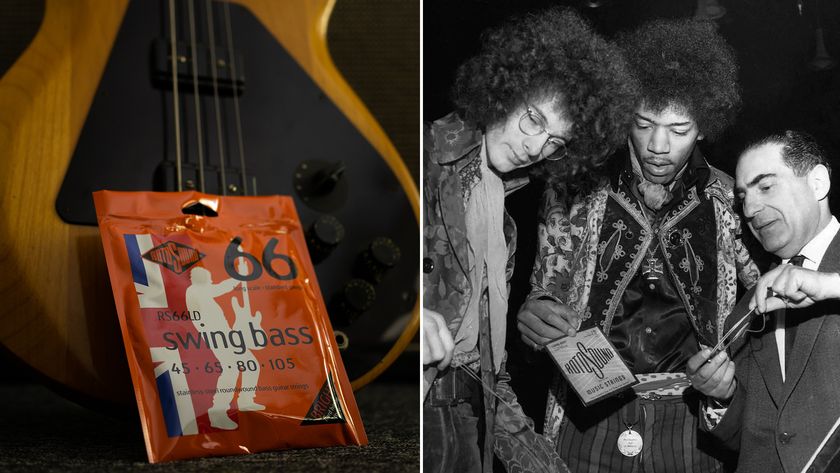Nothing But Thieves: "I think we need to move rock forward, because it died in its tracks for a reason"
Rock ’n’ roll ain’t dead – just look at English shredheads Nothing But Thieves for proof. In fact on album #3, they’re taking their signature modern rock mayhem to a whole new level
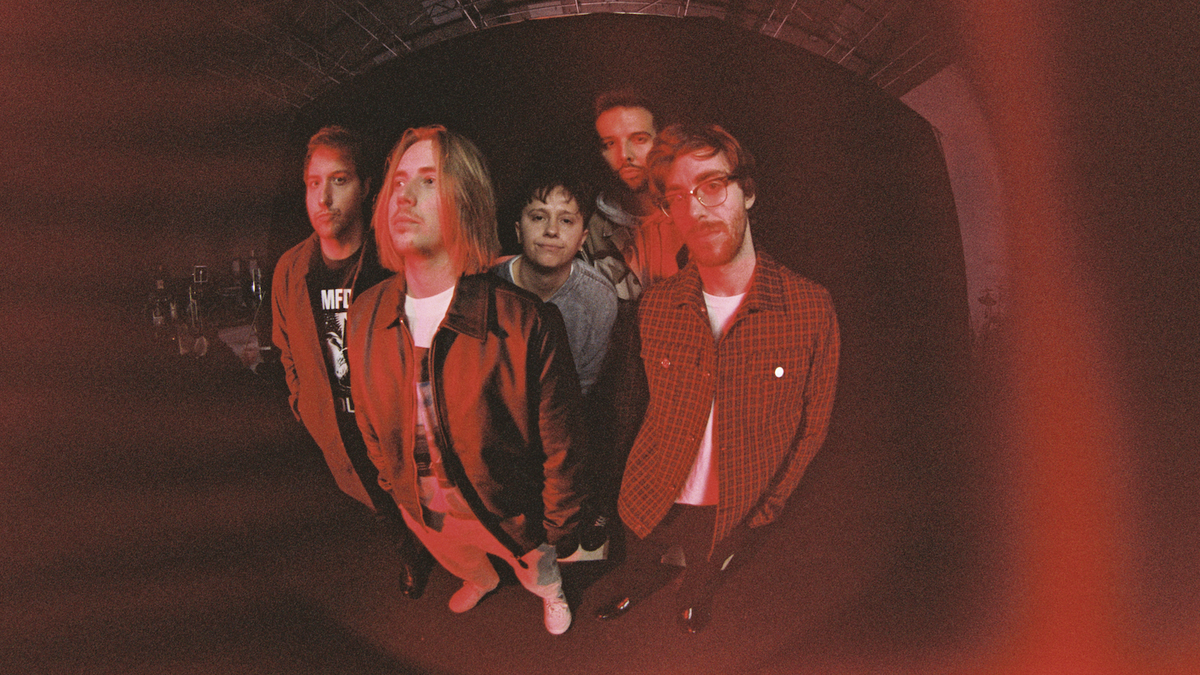
Back in 2017 (ah, simpler times), Australian Guitar was granted the privilege to hang out with Nothing But Thieves ahead of their Sydney show opening for Muse – a gig that would see them blast 30 minutes of their powerful and poignant pop-rock directly into the eardrums of approximately 21,000 concertgoers.
At this point, the English fivesome had just lifted the cloche on their hotly anticipated second album, Broken Machine, and had been kicking around the scene for a little over five years. They were no certainly no small-time hobbying rockers at this stage (they were, after all, the direct support for one of the world’s biggest rock acts on a sold-out arena tour), but we could sense the nerves bounding around – it was clear that Nothing But Thieves were, however well they hid it, unprepared for their recent catapulting into the mainstream.
Three years later, the band have grown well into their fit of modern rock’s new ringleaders: frontman Conor Mason speaks jovially with as much confidence as pride, rearing to wax lyrical on how he’s exploring an exciting new world of pop and hip-hop influences. Broken Machine is old news, too – it’s all about Moral Panic now: an album that builds on the roaring rock ’n’ roll that NBT cut their teeth on with kaleidoscopic synths and songwriting detours that take them in a myriad of unanticipated new directions.
But don’t sweat about their comfort in fame leading to them ditching their guitars. Mason swears up and down to us that six strings, four chords and the truth are all the band will ever care about at their core… But then again, since they have the opportunity to explore beyond the boundaries of such, why wouldn’t they? Moral Panic only just came out, but it’s already dominating the charts from Sydney to Spain – thanks in no short part because Nothing But Thieves refuse to rest on their laurels.
It’s a weird, wild and uneasy new world that lies ahead for us – and as you’ll read in our following down-to-earth chat with him, Mason wants to make the soundtrack for it.
It’s always a cop-out to go, “Oh, you can tell you’ve improved your skills” or whatever – but this really does sound like the definitive Nothing But Thieves record: a true evolution of the stylistic threads you’d sown in albums one and two.
I feel like it just comes from experience, and from knowing ourselves better as artists now. And of course, just getting better at our craft. I think it’s like anything – if you made Wotsits for a living, you’d get better at it after making them for 10,000 hours. The amount of hours that I’ve spent writing, that Dom [Craik] has spent with a guitar in his lap and that Joe [Langridge-Brown] has spent doing everything behind the scenes… All of that has just made us better songwriters.
So how did you want this record to build creatively on everything you’d done before?
It actually started in Australia! I had a day off in Sydney and I was walking with Dom, doing that whole kind of Harbour Walk thing. This was just after we did the second album, and out of nowhere he just turned to me and he was like, “Mate, I think our melodies could be better. I think we could be more interesting.” And I remember at the time being, like… Not offended, but just like, “Oh… Really?” [Laughs]. But then I was reflecting back on it, and I was like, “Yeah, okay, he does have a point.” So I started studying the flow and rhythm of hip-hop, and pop movements throughout history, and all this stuff that I wouldn’t normally study.
Get The Pick Newsletter
All the latest guitar news, interviews, lessons, reviews, deals and more, direct to your inbox!
I think that’s all just kind of transcended into what we write now. And Dom is a wicked producer – he’s been producing pop and hip-hop artists for years now, and I think that’s just made him more aware of what we could do and where we could take our songs. And he’s really pushed us with that knowledge. He’s always trying to find the newest way to present a rock band, and I really like that. People always say shit like, “They need to bring rock back,” but I hate that phrase – I think we need to move rock forward. Because it died in its tracks for a reason, I think.
Even outside of Nothing But Thieves, I’m always writing from the perspective of a learner. And under a pop background, that just has more energy and it’s more interesting to me, rhythmically and in terms of what’s possible to present with your sound.
I can name at least a dozen bands that started off with a heavy rock slant, tasted chart success and then went full bore into the digital pop realm. But even as Nothing But Thieves continues to climb the ladder, you’ve kept things very analogue and instrumental: there are crunchy guitars and real drums in every track – hell, even some math-rock vibes on “Phobia”! Was it important for you to maintain that authenticity as instrumentalists?
100 percent! That’s another thing I’ve noticed a lot more of lately – when bands try to become modern, they think the way to do that is just slap a crappy synth on the sound they already have and call it a day. And it’s not. For us, we still want to keep things as organic as we can, using real instruments and having real songs – and just finding ways to make that atmosphere more modern-sounding and experimental without compromising on our authenticity as a band.
I do think that with this record, if you stripped everything back down to its barest form, there’d still be songs in there. There’s always the soul of a song that exists when you take away all the synths and the production, and that’s always been really important for us. But just because our songwriting has gotten better, we’ve been able to build more on those souls and do more with our sound.
So what’s the dynamic like between yourself, Joe and Dom as guitarists?
Joe and Dom are both the driving force of the guitars. Dom’s brain is always in this odd, boisterous, zany, jaunty sort of world. He’s always going, “Where can I move around the beat? How can I make this guitar part as hard and as interesting as possible?” And I really like that – he’s always trying to pull it and push it, and he just never wants to do any kind of standard settings or stereotypical rock tones.
I think Dom writes most of the guitar parts, but Joe’s got this great ear for the lead playing – he’s got a really good ear for solos and the melodic side of it all. And then where I come in, in terms of anything to do with the guitars or the music – I’ll just take a step back from everything and listen to each part individually, like I would with a melody or anything else. So whether it’s a synth, a guitar or a melody line, this or that, I’ll always think, “Can I sing that back? How I can make that the best it can possibly be?”
Sometimes if Dom’s writing a riff and he comes up with something super interesting, I’ll just question him and be like, “How about that note there stays in the same beat as that hook, so the sequence flows better?” But I think it’s good for me to take a step back and not actually touch the guitar when it comes to writing.

Ellie Robinson is an Australian writer, editor and dog enthusiast with a keen ear for pop-rock and a keen tongue for actual Pop Rocks. Her bylines include music rag staples like NME, BLUNT, Mixdown and, of course, Australian Guitar (where she also serves as Editor-at-Large), but also less expected fare like TV Soap and Snowboarding Australia. Her go-to guitar is a Fender Player Tele, which, controversially, she only picked up after she'd joined the team at Australian Guitar. Before then, Ellie was a keyboardist – thankfully, the AG crew helped her see the light…
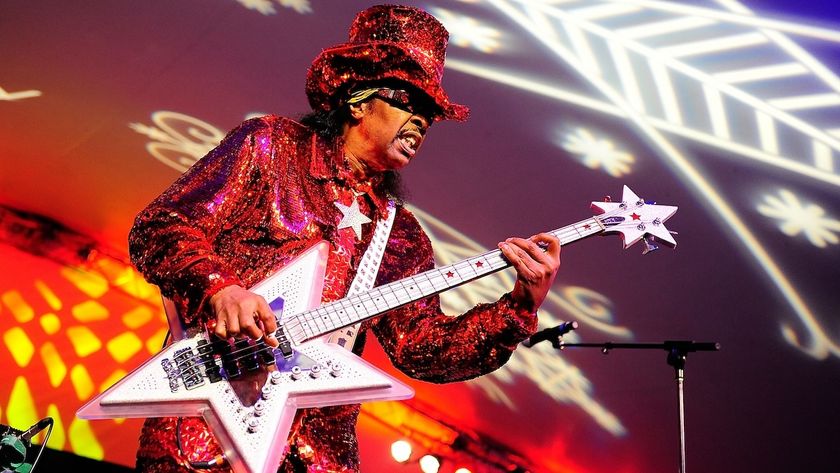
“The bass is the instrument you need to play the longest to become truly funky”: 20 funk bass legends who took low-end groove to new heights
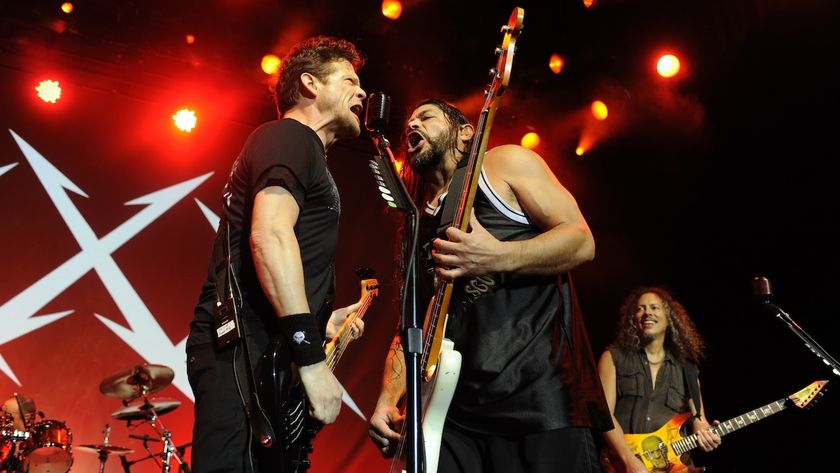
“There’s an art to simplicity, and Jason Newsted brought that art. Cliff Burton was more aggressive, and a busier player”: The bassists of Metallica
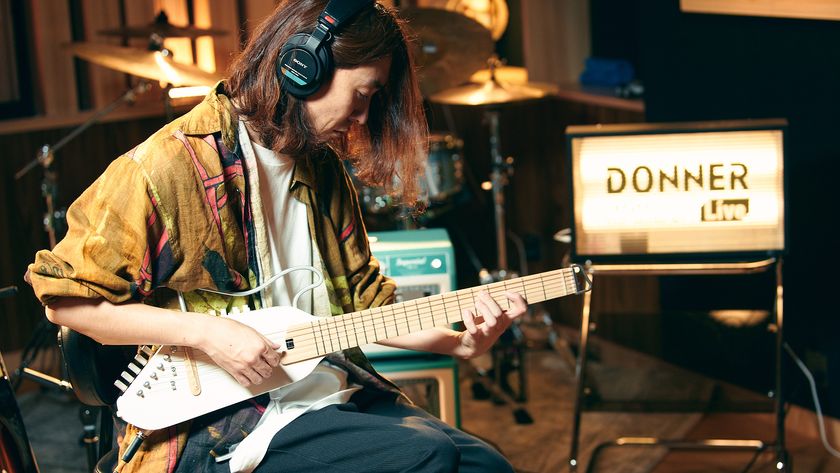
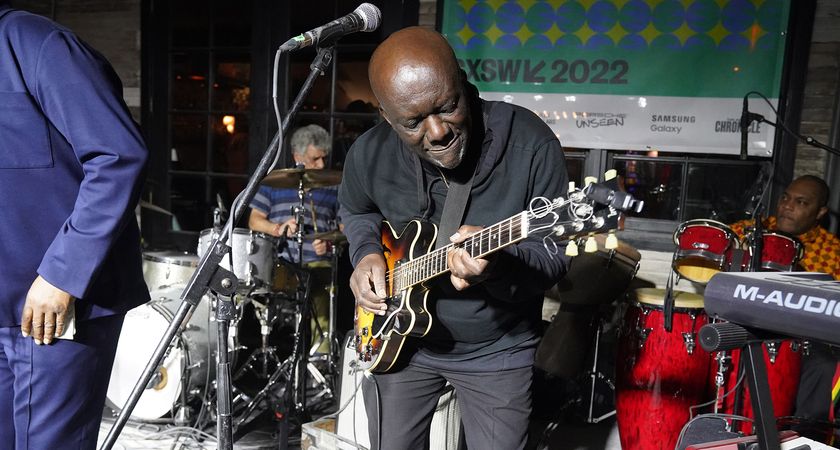
![[L-R] George Harrison, Aashish Khan and John Barham collaborate in the studio](https://cdn.mos.cms.futurecdn.net/VANJajEM56nLiJATg4P5Po-840-80.jpg)
